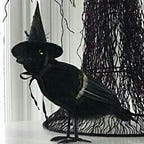A House is a Machine for Eating People
Spoilers from the start for the Netflix series The Haunting of Hill House
At the end of the Netflix series of The Haunting of Hill House the House wins. I’ve heard tell that there was an alternate ending mooted in which Luke’s two-year anniversary is shown to be taking place in the Red Room, a more explicitly horrific ending for sure, but I like the implicit horror of what we actually got. They may have escaped its maw for now, but the surviving Crains are still owned by the house; they will fall and it will stand and it will exert itself onto them and make their choices for them until they die. And, like the Dudleys, like Hugh and like Nell, they will feed themselves to it, to the thing that exerted such control and power and dominance over them. The House has stolen their lives, it can wait to finish them off.
Abuse and trauma reach through time. One of the theories around PTSD is that it occurs when a horror is still being kept alive as an unformulated memory, it is an accretion of flashing and uncontrollable energy around an open wound that can never heal. The traumatic event is never consigned to the past, where it can be processed and moved on from, but is kept as an ever present present tense. Abuse reasserts itself in a life lived as if the abuse is ongoing. When the trauma is rooted in the family, when the abuse is domestic, there is nowhere to hide from it. A house is the location of the family, it is the locus of the domestic. When where we live is also what contains that which is destroying us then where we live will always be a place to fear; safety is in itself a danger.
The House knows this, it knows that trauma is all it needs to bind people to it. The Red Room is a refuge — it is what each person who lives there needs it to be — because the House needs to be loved for its trickery to work. When we do not feel safe we cannot be betrayed, and when we have no affection for the monsters it is far too easy to just walk away from them. It has to be a place of wonder before it is a place of pain, and like the most skilled of abusers it uses that charisma, that hold it has, to make its victims question everything they’ve ever thought against it. The horror of the ending is the same horror of witnessing the abuse survivor tell us that their abuser is the only person that they’ve ever loved; they walk back into that house and they close the door and they bear the bruises and we can do nothing, because a house is a machine for eating people. The horror of weaponised forgiveness.
A house is not a house with no-one to live in it, or with no-one having lived or going to live in it. A house without occupation, without the possibility or actuality of occupation, is a building. As le Corbusier famously stated, a house is a machine for living in, but only by being lived in does a house become a house. It is the paradox of actualisation. It is the squatters who turn the London investment of an oligarch back into a house, rescuing it from the status of property and giving it a role once more. It is people, inside the belly of the monster, who make a house a home.
The House is desperate to be a Home, jealous of Olivia’s idea of a forever home it forces her to make itself her final resting place. Olivia’s weakness therefore is not her flightiness, not her mental health, but her hope for the future. The House turns this hope into fear, a nasty trick to play but again one familiar to anyone who’s seen or experienced abuse. The House degrades and abuses people until it is the only place that they can return to to feel like they are themselves. It takes away the possibilities that their life once held, greedily eating their futures. Once it puts its spell on you you belong to it. The horror of the ending of The Haunting of Hill House is the promise made by Hugh to Mr Dudley. As viewers we are denied the shiver of spectral violence and corporeal escape, or the tragedy of the House’s clear victory and left instead with the brutal reality that sometimes we forgive those who do the most terrible things to us. The House wins in the end, because it has broken the Crains and they belong to its world and not to ours.
